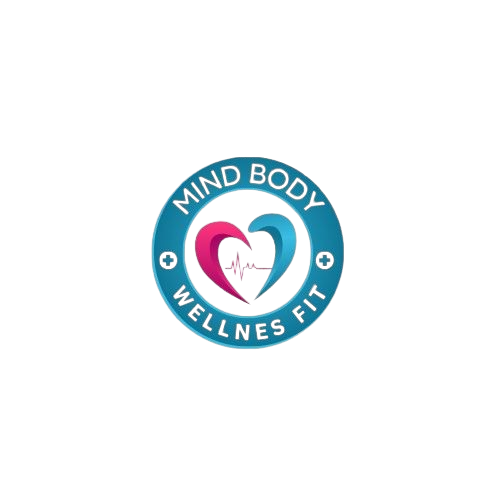Hormones play a crucial role in regulating a range of bodily functions, from metabolism and energy levels to mood and sleep. When they’re out of balance, it can have a significant impact on your overall health and well-being. Symptoms like fatigue, mood swings, weight gain, and irregular cycles can all point to hormonal imbalances. Fortunately, there are natural ways to restore harmony to your hormone levels. As a hormone support coach, I’ve helped many clients navigate this journey, offering practical advice and support. In this article, I’ll share some expert tips on balancing hormones naturally, and how a hormone support coach can guide you in the process.
Understanding Hormonal Imbalance
Hormonal imbalance occurs when the levels of hormones in your body become too high or too low, disrupting normal bodily functions. This imbalance can result from various factors such as stress, poor diet, lack of sleep, and environmental toxins. As a hormone support coach, I often work with clients who experience symptoms like mood swings, fatigue, anxiety, weight fluctuations, and poor skin health, all of which can be linked to hormonal imbalances.
The most common hormones that may be imbalanced include estrogen, progesterone, cortisol, insulin, and thyroid hormones. A hormone support coach can help you identify which hormones are out of balance by examining your symptoms, conducting blood tests, and assessing your lifestyle habits. Once the cause is pinpointed, specific strategies can be implemented to restore balance.
The Role of Diet in Balancing Hormones
What you eat plays a vital role in regulating your hormones, and the right diet can help balance hormones naturally. As a hormone support coach, I emphasize the importance of nourishing your body with whole, nutrient-dense foods to support healthy hormone function. The right balance of nutrients can help prevent hormonal disruptions caused by nutrient deficiencies or excesses.
Key Nutrients for Hormonal Health
Some nutrients play a particularly significant role in maintaining hormonal balance. Magnesium, for example, helps regulate insulin and cortisol levels, while zinc supports thyroid hormone function. Vitamin D is essential for estrogen metabolism, and healthy fats are crucial for the production of all hormones. Foods that are rich in these nutrients include:
- Leafy greens like spinach and kale for magnesium.
- Fatty fish such as salmon and mackerel for omega-3 fatty acids and vitamin D.
- Nuts and seeds for zinc and magnesium.
- Avocados and olive oil for healthy fats.
A hormone support coach can guide you in creating a diet plan that incorporates these nutrients while avoiding foods that may disrupt hormone levels. For instance, reducing sugar intake is essential, as high sugar consumption can cause insulin resistance and promote estrogen dominance.
Foods to Avoid
Certain foods can contribute to hormonal imbalances. Processed sugars, refined carbohydrates, and artificial additives can wreak havoc on your hormones. These foods may increase insulin levels, trigger inflammation, and disrupt thyroid function. Additionally, excessive caffeine and alcohol can elevate cortisol levels, leading to stress and potential hormone disruption.
A hormone support coach can help you eliminate or reduce these foods from your diet while recommending healthier alternatives that support hormonal health.
Lifestyle Changes for Hormonal Balance
In addition to dietary changes, making certain lifestyle adjustments can help balance hormones naturally. As a hormone support coach, I often work with clients to identify areas of their lifestyle that may be contributing to hormonal imbalances and offer practical solutions to restore balance.
Stress Management
Chronic stress is one of the most significant contributors to hormonal imbalance. When you’re stressed, your body produces cortisol, the “stress hormone.” If cortisol levels remain high for extended periods, it can negatively affect other hormones such as estrogen, progesterone, and thyroid hormones. A hormone support coach can help you implement stress-reduction techniques that promote hormonal balance, such as:
- Mindfulness meditation to reduce cortisol.
- Deep breathing exercises to calm the nervous system.
- Yoga and Tai Chi to relax and improve mental clarity.
By incorporating stress management techniques into your daily routine, you can help prevent chronic stress from interfering with your hormones.
Sleep Hygiene
Quality sleep is another key factor in balancing hormones. Poor sleep can lead to higher cortisol levels and disrupt the production of other hormones like insulin and growth hormone. As a hormone support coach, I encourage clients to establish healthy sleep habits, such as:
- Going to bed and waking up at the same time every day.
- Limiting screen time before bed to reduce blue light exposure.
- Creating a relaxing bedtime routine to signal to your body that it’s time to wind down.
By prioritizing sleep and improving sleep hygiene, you can help your body restore hormonal balance during the most restorative hours of the night.
Exercise and Movement
Regular physical activity is essential for supporting hormonal health. It helps reduce cortisol levels, improve insulin sensitivity, and regulate estrogen and progesterone. However, it’s essential to strike the right balance. Over-exercising can lead to hormone disruptions, especially in women. As a hormone support coach, I advise clients to engage in a variety of exercises that promote hormonal balance, such as:
- Strength training to support metabolic function and improve insulin sensitivity.
- Cardio to reduce stress and improve circulation.
- Gentle movement like walking or yoga to prevent overexertion and promote recovery.
The key is to find a workout routine that supports your health goals without putting undue stress on your body.
Herbal and Natural Supplements for Hormonal Support
Herbal remedies and natural supplements can also play a significant role in balancing hormones. As a hormone support coach, I often recommend the use of adaptogenic herbs and supplements that help regulate cortisol levels and support overall hormonal health.
Herbs for Hormonal Health
Adaptogenic herbs like ashwagandha and holy basil are known for their ability to help the body adapt to stress and support balanced cortisol levels. Maca root is another herb that can help balance estrogen and progesterone, while chamomile and lavender are known for their calming effects.
It’s important to note that while herbs can be helpful, they should be used in conjunction with lifestyle changes for optimal results. A hormone support coach can help you determine which herbs may be beneficial based on your specific needs.
Supplements to Consider
Certain supplements can also support hormonal health. Omega-3 fatty acids and vitamin D are essential for hormone production, while probiotics help maintain gut health, which is critical for hormone regulation. B vitamins support adrenal health, and magnesium helps regulate insulin and blood sugar levels.
Before introducing any herbs or supplements into your routine, it’s important to consult with a hormone support coach to ensure they’re appropriate for your specific hormonal needs.
The Impact of Gut Health on Hormonal Balance
Your gut health plays a significant role in regulating hormones. As a hormone support coach, I often emphasize the importance of maintaining a healthy gut microbiome to promote balanced hormones. The gut produces hormones like serotonin and contributes to the metabolism of estrogen, thyroid hormones, and insulin.
Improving Gut Health
To promote gut health, focus on eating fiber-rich foods such as whole grains, vegetables, and legumes, and incorporating fermented foods like yogurt, kimchi, and sauerkraut. Additionally, taking probiotics and prebiotics can help replenish healthy gut bacteria.
As a hormone support coach, I also recommend avoiding excessive use of antibiotics and limiting processed foods that may disrupt the gut microbiome. A healthy gut supports optimal hormone production and function.
Expert Tips for Maintaining Long-Term Hormonal Balance
Balancing hormones naturally requires consistent effort and attention. As a hormone support coach, I always remind clients that the key to long-term success is sustainability. Rather than quick fixes, focus on making small, lasting changes that will positively impact your health over time.
Working with a Hormone Support Coach
One of the most effective ways to restore hormonal balance is by working with a hormone support coach. A coach can help you create a personalized plan, track your progress, and make adjustments as needed. They can also offer ongoing support and guidance to ensure you stay on track and achieve your goals.
By partnering with a hormone support coach, you can receive the expert advice and encouragement you need to regain control over your hormones and achieve long-lasting health and wellness.
Takeaway
Balancing hormones naturally is achievable with the right approach. By focusing on a nutrient-dense diet, managing stress, getting quality sleep, exercising regularly, and utilizing natural supplements, you can restore harmony to your hormonal health. Working with a hormone support coach can help you navigate this journey and create a personalized plan tailored to your unique needs. Remember, achieving hormonal balance is a process, and with patience and consistency, you can experience lasting improvements in your health and well-being.






